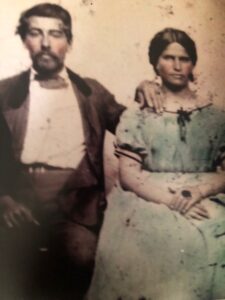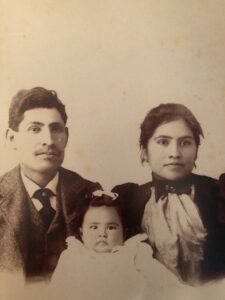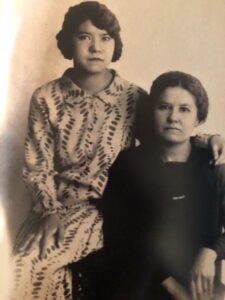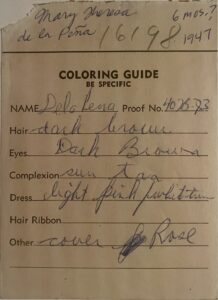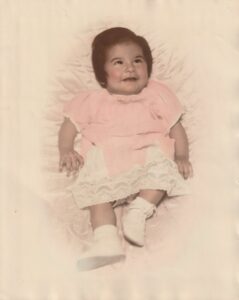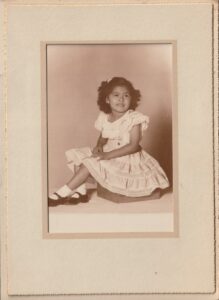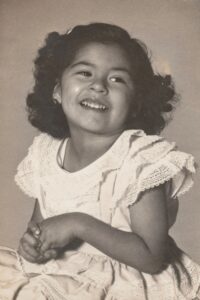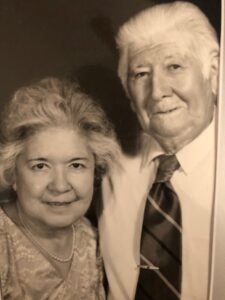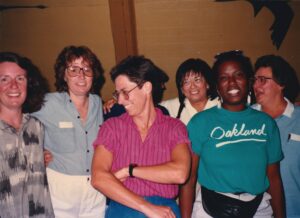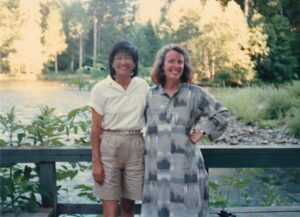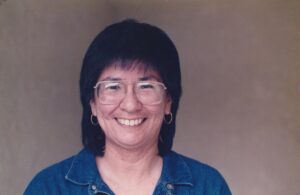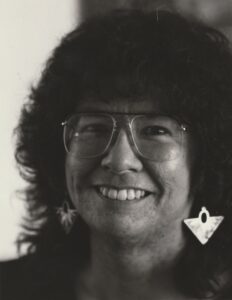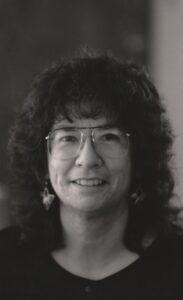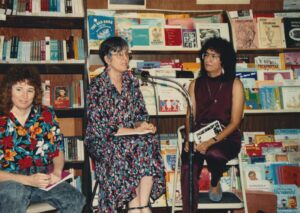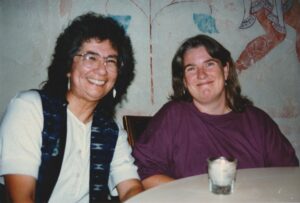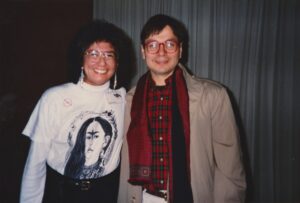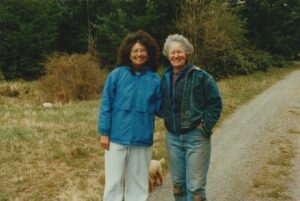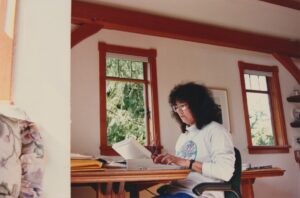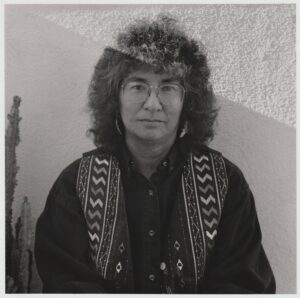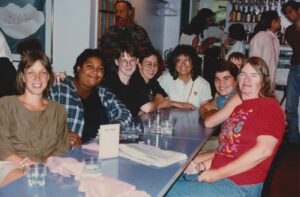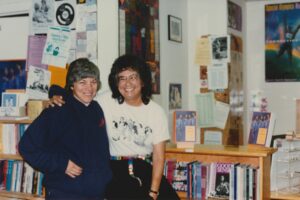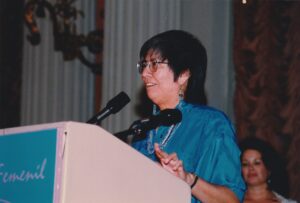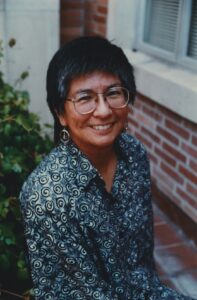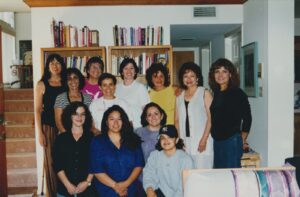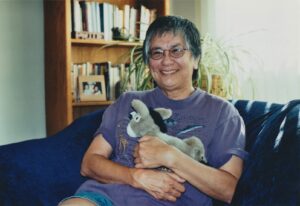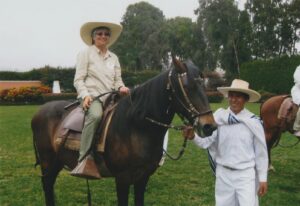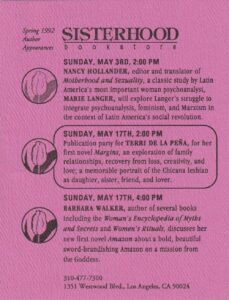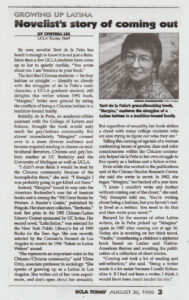Terri de la Peña was born on February 20, 1947 in Santa Monica, California. Her father was a descendant of the Marquez family, one of the earliest families to settle in the area due to the land grants parceled out in the early nineteenth century; her mother and grandmother immigrated from Chihuahua, Mexico in the 1920s. Terri grew up working class in a Mexican American Catholic family, where her father worked in an automotive center and her mother ran a beauty shop from home. She grew up attending St. Anne’s Catholic School, where the nuns encouraged her to go to college, but her parents instead pushed her to learn trade skills so she could work and get married with kids as soon as possible.
In early childhood, Terri knew that she liked girls and that it would not be acceptable in her culture. She had no concept of lesbianism and had no role models to look up to for it. She started watching cowboys in Westerns as a form of escapism and began experimenting with queer storylines about Mexican Americans living in the rural American west. She survived a traumatic hit-and-run at age 24, and afterward began including the theme of car crashes in her writing as well.
In the meantime, Terri attended LA Trade Tech out of high school to learn commercial art, followed by moving between jobs in the UCLA Chicano Studies Research Center, the UCLA Chemistry Department, various law firms, and then back to UCLA for administrative roles. As her parents started wondering why she was still unmarried, she began joining feminist and lesbian circles in LA by coming into the Sisterhood Bookstore and getting involved with a Latina Writers’ Group. There, she submitted her short story “A Saturday Night in August,” telling the story of a closeted Chicana going to an Equal Rights Amendment Rally and encountering a very out lesbian, to the Chicano Literary Prize, where it won third place.
Terri went on to publish her first novel, Margins, in 1992, featuring a romance between a Mexican American woman and a white woman. It was the first Chicana lesbian coming out novel published in the world. She wanted Veronica, the Mexican American protagonist, to come out at a young age and serve as a role model for other Latinas. Terri herself came out through this book — her colleagues at UCLA swarmed to buy the book and then realized what the story was about. She started visiting UCLA classes to do readings and give speeches, where she was often approached by students saying that her novel saved their lives.
Terri then released Latin Satins, her second novel detailing the adventures of a singing group who lived in a group house in Ocean Park; and Faults, a novel about the 1994 earthquake, which was nominated for the Lambda Literary Prize. She also published a short story, “Beyond El Camino Real,” detailing a road trip she took with her ex girlfriend across the country, where she observed the difficulty of racial integration in all-white conservative rural America.
During this time, Terri had several romantic relationships that ended because of her demanding work commitments. She also survived leukemia, worked full time, and cared for her mother who had Parkinson’s. Terri maintains that her identity as a published lesbian Chicana writer empowers her by bringing together the otherwise fragmented parts of her identity that make up her life story. She hopes that her works can serve as role models and examples for Mexican Americans navigating their queer identities.

